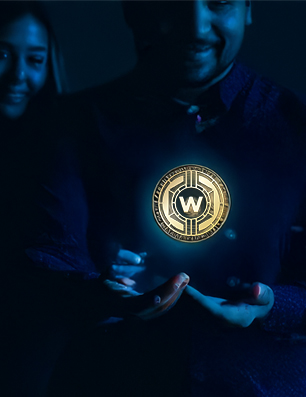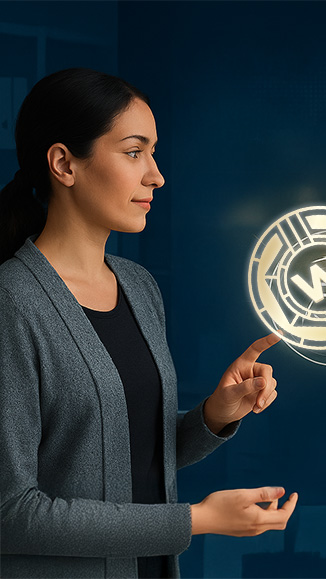- Written by: Nick
- Tue, 30 Nov 2021
- Russian Federation
Covered: Musk Launches ERC-20 based DAO How ‘Decentralized Philanthropy’ can fix corruption What will the DAO do and potential flaws DAO From Another Brother In a story that has garnered little attention, the brother of Elon Musk, Kimbal, announced over the weekend that he intends to launch a DAO that is focused on “decentralizing philanthropy.” […] The post Elon Musk’s Brother Launches Decentralized Charity appeared first on CryptosRus.
Elon Musk’s Brother Launches Decentralized Charity
Covered:
- Musk Launches ERC-20 based DAO
- How ‘Decentralized Philanthropy’ can fix corruption
- What will the DAO do and potential flaws
DAO From Another Brother
In a story that has garnered little attention, the brother of Elon Musk, Kimbal, announced over the weekend that he intends to launch a DAO that is focused on “decentralizing philanthropy.” Kimbal has dubbed it, the Giving DAO.
He has asked those who want to read the whitepaper to ‘DM him’. The DAO will be built on Musk’s current non-profit and will be called Big Green DAO. It is dubbed as the “first non-profit led philanthropic DAO.”
A DAO is a blockchain-based governance model in which there are no central decision-making authorities. The governance decisions are distributed and/or automated. In this case, the “collective decision-making” in this DAO will be voted on by the community.
Wow, #Web3 has been teaching me a lot. I’ve decided to run an experiment to decentralize philanthropy. This #GivingTuesday I’m launching the first Giving DAO. Want to read the Lite Paper? DM me. Constructive Twitter feedback welcome
— Kimbal Musk (@kimbal) November 26, 2021
Philanthropy Scandal
Assuming Kimbal has good intentions and this is not one of the scummy charity coins that ran amuck the crypto space this summer (see here), having donations verified on the blockchain would lend transparency to an “industry” if you can call it that, rife with waste, fraud, and abuse.
Besides the obvious scam charities, seemingly legit non-profits–in the form of NGOs and other structures “are especially vulnerable to fraud”, according to a paper by Dawn Schwartz of Liberty University, published in 2019.
Gravity Payments CEO Dan Price told Market Watch this year that “billionaire philanthropy is a scam.” It is well known that most charities are filtered through bureaucracy and multiple entities and thus the money is often siphoned off along the way. Also, the majority of funds end up going towards expenses to give and accept the money, a clearly absurd system.
Musk acknowledged this, saying:
“theoretically decentralizing philanthropic decisions and cutting out the bureaucracy has the potential to unlock over $100 Billion dollars per year just in America.”
Blockchain technology takes out the potential for skullduggery in the accounting aspect of philanthropy, as of course, a decentralized ledger can be viewed by anyone and is unalterable and immutable–there is no way to “hide” the route of the funds. This is why when there is a rug pull, it can be easily traced on the blockchain (unless tornado cash or privacy coins are used).
What of Musk’s DAO?
Without reading the whitepaper of the DAO, it is hard to know exactly how it will be structured. However, Twitter users who DM’d Musk and read it gave feedback to him in the comments, and Musk appeared to be receptive.
Good idea. We’ll add that. Thank you
— Kimbal Musk (@kimbal) November 27, 2021
Another user lamented that paper appeared to be “top-down focused,” skewed to the rich. Musk responded: “one step at a time. it will open to all donors of any size if the experiment shows success.” Interestingly, Musk has selected Ethereum as the blockchain it will run on, and an ERC-20 governance token will be issued for the DAO.
Musk has been focused on gardening and improving agriculture for years. It appears Giving DAO will be centered on the issue of food insecurity worldwide. The main thrust of this concept is to get donations directly to the afflicted without an intermediary, peer-to-peer if you will. This ridding of the middleman is at the heart of crypto and at the heart of the Bitcoin whitepaper.
Musk said the critical question, or thesis, in creating this DAO is: “If we put the grant-making authority in the hands of the frontlines will it make a bigger impact than keeping the decision-making centralized?”
There have already been instances of philanthropic DAO’s succeeding, for example, Gitcoin DAO has raised over $40 million in grants for public goods, based on community voting. The lack of overhead and again, bureaucracy in a DAO model is the perfect use case in light of the misadventures in traditional philanthropy.
For now, the DAO is controlled by Big Green DAO’s grantees, with which some take issue. Each committee member “is a representative of an organization working in food”, according to the website. Musk has stated he is working on “ranked-choice” voting, quadratic, and other methods to address the concentration of power in the committee DAO.
There is a lot to figure out; game theory, political science, and of course computer science are all factors. However, the move towards non-profits DAO’s and DAO’s, in general, appears to be a trend that could blow up going into 2022. We already saw the constitution DAO go viral, and likely more of that is coming.
The post Elon Musk’s Brother Launches Decentralized Charity appeared first on CryptosRus.






